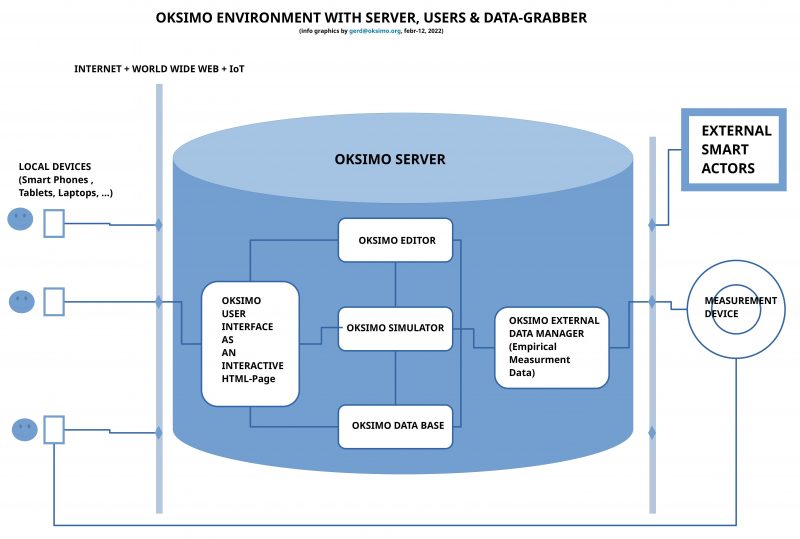eJournal: uffmm.org
ISSN 2567-6458, 15.March 2021 – 1.April 2022
Email: info@uffmm.org
Author: Gerd Doeben-Henisch
Email: gerd@doeben-henisch.de
CONTEXT
This post is part of the theme called ‘Oksimo Software Structures‘ which in turn is part of the overall uffmm.org Blog.
OKSIMO SOFTWARE APPLICATION STRUCTURE from March 2021

Seen from the users
Eveybody, who has a device, which can be connected to the internet and which owns a browser can address the URL of an oksimo server. There can be multiple users from around the world which can act as a ‘virtual user group’, as a ‘team’.
Seen from smart devices
Every application which can interact with the internet can connect to an oksimo server and send measurment data to the server or can even interact interactively within a simulation acting as a smart actor.
This feature of being capable to use empirical data in real time during a simulation allows an oksimo application also to function within a smart city environment.
USER – SIMULATIONS
Users can start a given simulation by loading either a simulation presented as an HTML-page or by loading a simulation from the server login.
In case of a simulation as HTML-page the user needs a simple simulation application on his own device.
In case of a simulation by server-login the user can simulate and while doing this all additional sources (smart actors, external data-sources, …) can be used.
User editing & simulation
A user can edit a new simulation with his local device, if there exists a text editor. The edited simulation can be handed out to the local oksimo-server app and can be simulated. In this case no team-work and no usage of external sources is possible.
Being logged-in a user can work together with other users while editing a new simulation. The edited simulation can be started to run every time. Additional external resources can be activated, if these are freely callable. Depending from the osimo server a set of ‘standard smart actors’ is located in the oksimo database and can be activated.
